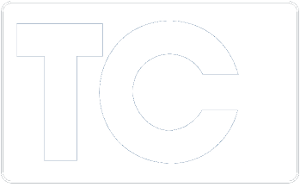6 Tips to Improve Your Bank’s Online and Omnichannel Customer Experience
While the new financial experience may involve fewer person-to-person interactions, clients still expect high levels of personalization.
Financial services Customer Experience (CX) encompasses every customer interaction with an institution on every platform. While this used to primarily happen over a teller counter, the new omnichannel CX includes apps, embedded finance, online systems, digital communications, and contact centers – any way users access their services. The better a customer’s experience at every touchpoint, the more likely they are to trust that company with their finances.
From their initial deposit to their many investment milestones, here are six tips for creating a better experience that your customers will know they can bank on.
1. Build Trust with Digital-first Customers – Digital money management can be daunting for new customers, especially if they are unfamiliar with your brand. Earning client trust can be challenging, but there are ways to make them feel more comfortable using your products. Center your company’s mission and values with consistent messaging and back it up with your services. Clients are concerned about the security of their transactions, so be transparent with your compliance and data privacy policies.
2. Prioritize Self-Service – Currently, most transactions originate digitally, with customers accessing self-service portals or making payments through embedded financial technology. Online transactions like trades or transfers are automated and fast. They generally require little intervention from human agents, making them efficient for the client and cost-effective for the financial institution.
3. Add a Human Touch – In an era where customer interactions are limited, each point of human-to-human contact is valuable. When self-service and AI can’t solve an issue, it’s up to the human agent to step in and provide exceptional customer service. Empower agents with up-to-date information about the client’s history to easily step into the conversation for personalized, empathetic support.
4. Create Connections Between Customers and Employees – Clients will feel more comfortable knowing their money is in the hands of knowledgeable, dependable financial employees, so make sure the transition between self-service and live agent assistance is seamless. Ensuring contact center agents are always available via phone or chat and equipped with top-of-the-line communications solutions leads to faster resolution rates and happier customers. UC solutions like AI-assisted agent support for dynamic real-time responses and work-from-anywhere technology will empower your people to respond professionally and customers will feel confident in their care.
5. Optimize Your Workforce – Human capital is the most valuable – and one of the most expensive – elements of running an organization. Finding the right balance of automated solutions and human expertise can help manage budgetary concerns while improving employee and customer satisfaction. Automated workforce management technology uses analytics to track times of peak demand, creating strategic schedules for flexible, efficient contact center staffing.
6. Collect Valuable Feedback – Today’s digital-first customers quickly tap a thumbs-up or thumbs-down icon, but gathering meaningful feedback is essential in providing high-quality financial experiences. Whether it’s a satisfaction survey at the end of a call or a net promoter score after an online chat, give customers a chance to share their thoughts. Their insight can identify pain points and lead to CX improvements you hadn’t considered.
Improve Your Financial Services CX with TCI
The pivot to online financial services is an opportunity for traditional banks, credit unions, and other institutions to provide new levels of exceptional customer experiences. Contact TCI today at (703) 321-3030 or GetHelp@tcicomm.com.

